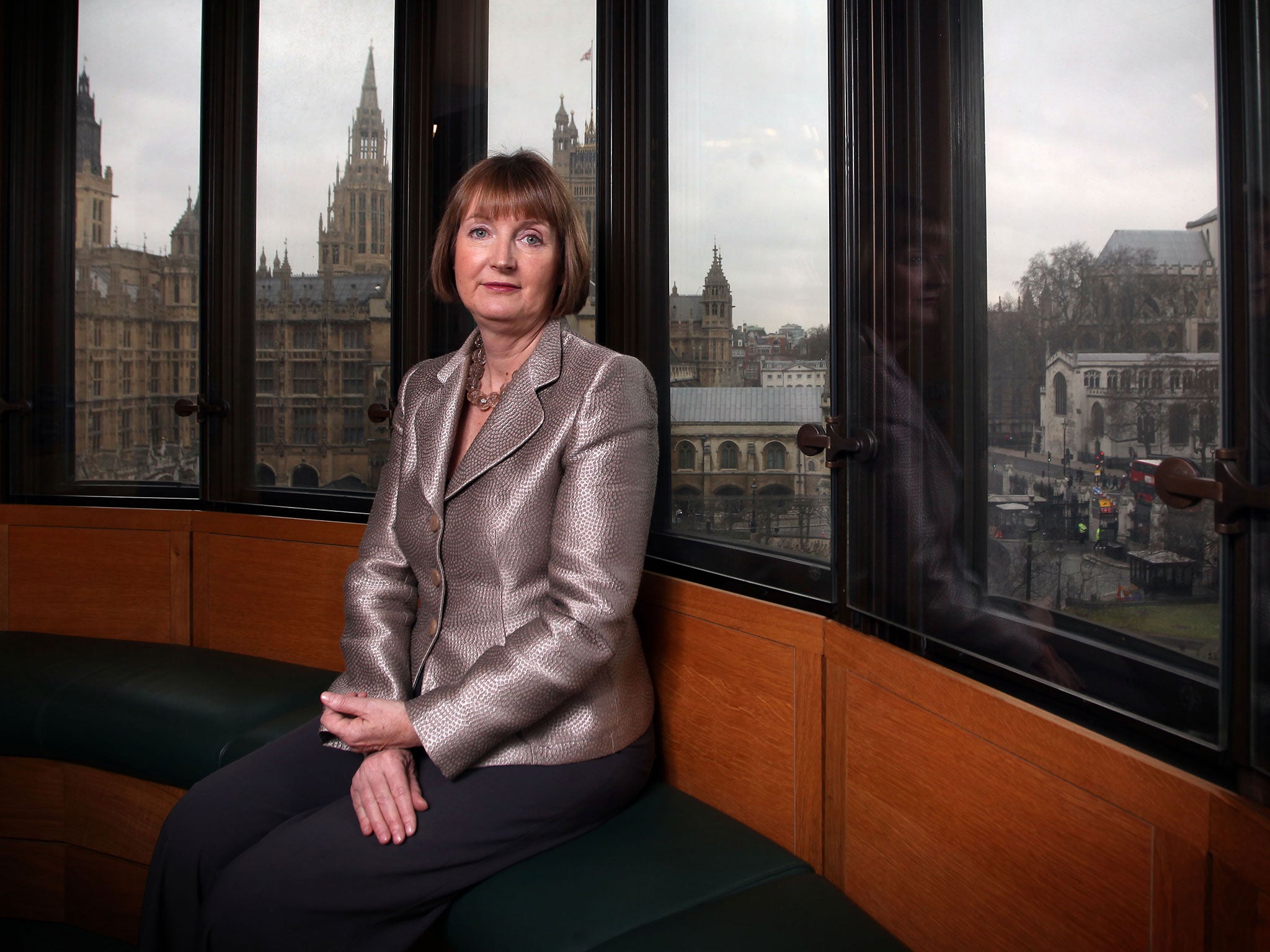Why Labour lost: Harriet Harman admits previous errors - but future power will depend on a new story to tell UK voters

Your support helps us to tell the story
From reproductive rights to climate change to Big Tech, The Independent is on the ground when the story is developing. Whether it's investigating the financials of Elon Musk's pro-Trump PAC or producing our latest documentary, 'The A Word', which shines a light on the American women fighting for reproductive rights, we know how important it is to parse out the facts from the messaging.
At such a critical moment in US history, we need reporters on the ground. Your donation allows us to keep sending journalists to speak to both sides of the story.
The Independent is trusted by Americans across the entire political spectrum. And unlike many other quality news outlets, we choose not to lock Americans out of our reporting and analysis with paywalls. We believe quality journalism should be available to everyone, paid for by those who can afford it.
Your support makes all the difference.This is not the Harriet Harman we know. Her interview reveals a refreshingly frank acting Labour leader, substituting her usual defensiveness with a near-reckless candour about her party’s failures.
Listening as we do to the party’s various leadership contenders (and ex-contenders) as well as the likes of Peter Mandelson and Ms Harman, we might be tempted to cry “enough already”.
Labour is indulging in an almost-medieval self-flagellation. The media asked the party to own up to its shortcomings, but one can have too much of a good thing.
Ms Harman is even hankering after a proper barney, or “some turbulence”, as she puts it. She has asked Dame Margaret Beckett to head a commission devoted to the causes of Labour’s defeat, a chilling prospect. Labour should brace itself for some more whiplash treatment.
In many ways, though, Labour’s defeat – though not the scale – was inevitable. So shambolic was its effort in 2010 that it was always going to face a mountain to climb. Only time can heal some political wounds, as Labour discovered after 1983 and the Conservatives after 1997.
It is also true that, for all the media talk of “Red Ed”, the party in 2015 was not that far to the left or out of the mainstream from where Tony Blair left it. Labour accepted deficit reduction, the broad mix of the economy and was squarely moderate on Europe, immigration and defence.
If anything, all this makes the task of the next leader much harder. In their time, Neil Kinnock, John Smith and the Blair-Brown New Labour project knew precisely what to do to win power – ditch socialism, unilateralism, anti-Europeanism and accept the Thatcher settlement on the unions and privatisation. Easier said than done, but it was a clear agenda.
Apart from dumping Mr Miliband’s disparate leftish policies – apparently popular at the time – what is the party and its next leader to do? (It is unkind, but necessary, to point out that the voters of Morley and Outwood have saved them the bother of dumping Ed Balls.)
Well, there are some things which seem fairly obvious. Stop banging on about food banks, zero-hours contracts and the living wage for a start. Winning the economic argument in the way the Tories did – and New Labour did before – is a second step: so start shouting about making the British economy competitive again.
Understand that the electorate knows that the country has to make a living in the way they themselves have to. Stop being just the voice of the dispossessed and start speaking up for those on 40 per cent tax with a newish car. Do not allow the Tories to be the party of “working people” and monopolise arguments about aspiration, which is a perfectly concrete notion for anyone in a trade or profession or is self employed who has some ambition for themselves and their family.
Labour should stop pretending that making the rich poorer makes the poor richer and that legislating for higher wages makes for sustainable prosperity. And Labour has to make the case for investment in infrastructure, and in education, and start being realistic about what the NHS and the social security system can deliver. As Lord Mandelson suggested, it is galling that a Tory Chancellor should outflank Labour with his Northern Powerhouse idea. How did that happen in a party that dominates virtually every Northern council?
Then there’s the party itself. It needs to take its share of the blame for treating Scotland as a branch office for so long, neglecting loyal support and using it as a collection of rotten boroughs whose main function was to offer safe seats for Labour insiders.
Labour also needs to break the institutional link with the unions. That will damage its funding, but the party has a choice: run campaigns that are well financed by the unions and lose; or fight elections as a truly democratic one-member, one-vote organisation that is closer to the voters, with all their inconvenient aspirations.
Some turbulence ahead indeed.
Join our commenting forum
Join thought-provoking conversations, follow other Independent readers and see their replies
Comments